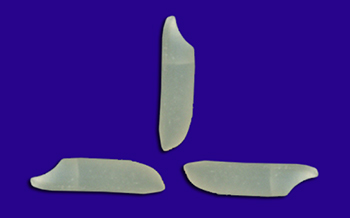Center for Food Safety and Applied Nutrition Constituent Update |
FDA Sends Warning Letters to Seven Companies Illegally Selling Hangover Products July 29, 2020 On July 29, 2020, the U.S. Food and Drug Administration (FDA) issued warning letters to seven companies whose products claim to cure, treat, mitigate, or prevent hangovers. A hangover can occur after alcohol intoxication. Alcohol intoxication, like all poisonings, causes dose-related dysfunction and damage, ranging from mild impairments to death. Alcohol intoxication causes temporary damage to brain function, causing impairments of judgment, attention, reflexes, and coordination. The products outlined in these letters, which are labeled as dietary supplements, are unapproved new drugs and have not been evaluated by the FDA to be safe and effective for their intended use. Dietary supplements that claim to cure, treat, mitigate, or prevent hangovers could potentially harm consumers, particularly young adults, who may be led to believe that using these products, rather than drinking in moderation or not at all, can prevent or mitigate health problems caused by consuming too much alcohol. Consumers should not rely on these products as an alternative to responsibly limiting their consumption of alcoholic beverages. Warning letters were sent to the following companies: |
Riceplus Magazien is a quarterly magazine that publishes research articles including industry realted for the rice sector.It shares global and regional articles on rice.Riceplus Magazine also publishes two digital magazines on daily basis namely Daily Global Rice E-Newsletter & Exclusive ORYZA Rice E-Newsletter for entire global agriculture community.For more information visit on www.ricepluss.com
Menu-1
- About Riceplus Magazine
- Latest Issue
- Archives-Digital Editions
- Rice R&D (Innovation & Technology)
- Exclusive Interviews
- Induss Pak Consulting
- Rice Facts & Figures –Statisitcs
- Research Reports
- Write for Riceplus Magazine
- Useful Links
- Join us On Social Media
- Upcoming Events
- Picture Gallery
- Advertise with us
- Contact us
- Rice Recipe/ Dishes/Feast Your Self
Menu-2
- Editorial
- Induss Pak Consulting
- Daily Local Regional Global & Exclusive ORYZA Rice E-Newsletters
- Upcoming Events
- Rice Recipe/ Dishes/Feast Your Self
- Picture Gallery
- Write for Riceplus Magazine
- Research Reports
- Induss Pak Consulting
- Exclusive Interviews
- Useful Links
- Picture Gallery
- Archives-Digital Editions
- About Riceplus Magazine
- Contact us
- Join us On Social Media
- Advertise with us
- Latest Issue
- Rice Facts & Figures –Statisitcs
Menu-3
- Exclusive Interviews
- Rice Recipe/ Dishes/Feast Your Self
- Useful Links
- Picture Gallery
- Rice Facts & Figures –Statisitcs
- Induss Pak Consulting
- Editorial
- Advertise with us
- Daily Local Regional Global & Exclusive ORYZA Rice E-Newsletters
- Induss Pak Consulting
- Picture Gallery
- Write for Riceplus Magazine
- Research Reports
- Archives-Digital Editions
- About Riceplus Magazine
- Contact us
- Join us On Social Media
- Latest Issue
Wednesday, July 29, 2020
Constituent Update: FDA Sends Warning Letters to Seven Companies Illegally Selling Hangover Products
Diets, health and sugar reduction in the spotlight during the era of COVID-19
Diets, health and sugar reduction in the spotlight during the era of COVID-19

RELATED CATEGORIES: Beverages, Sweeteners
The array of serious health risks imposed by excessive energy and sugar consumption are widely acknowledged globally. In the era of COVID-19, in which obese and chronically ill individuals are at greater risk of developing serious complications due to COVID-19 infections, the food and beverage industry must rise to the challenge and further expand programs to reduce the levels of energy and free sugars in food and beverage products. There is a wealth of scientific evidence that supports the use of nonnutritive sweeteners including stevia sweeteners to help reduce the risk of chronic diseases such as diabetes and obesity. This white paper discusses the research on the positive effects of stevia sweeteners on health and wellness and innovations that enable new approaches to sugar reduction.https://www.foodnavigator-asia.com/Products/Diets-health-and-sugar-reduction-in-the-spotlight-during-the-era-of-COVID-19?source=9&utm_source=Leadgen_Mailshot&utm_medium=email&utm_campaign=LID%20179859%20-%20SweeGen%20-%20FNA%20-%20Leadgen%20Mailshot%20-%20July%2030%20-%202020
Unlocking Innovation webinar Aug. 6: Discover how to reduce your environmental impact & improve sustainability
Unlocking Innovation webinar Aug. 6:
Discover how to reduce your environmental impact & improve sustainability
By Elizabeth
Crawford
- Last updated on GMT
AddThis Sharing Buttons
Share to FacebookShare to TwitterShare to LinkedIn

Related tags: unlocking innovation, Sustainability, coronavirus
Even as the pandemic continues to strain the food system and pressure manufacturers to balance increased demand with restricted supply, companies must still pursue sustainability goals, including minimizing their environmental impact and improving the lives of their workers and suppliers, or else risk losing consumers.
According to The Hartman Group’s Sustainability 2019 Beyond Business as Usual report, current events, including the pandemic and anti-racism movement have pushed many consumers to reflect more closely on their values and those of the companies they support – elevating the already heightened importance of sustainability.
With this renewed sense of
urgency, FoodNavigator-USA has gathered a panel of experts to discuss how food
and beverage players across the value chain are working together to minimize
their environmental impact by reducing packaging and waste, improving the
severely hampered recycling system in the US, lowering their reliance on
non-renewable or limited resources and better supporting workers and their
communities.
Join the conversation on Aug. 6 at 12 CT
by registering HERE for free for the last installment of
FoodNavigator’s global Unlocking Innovation webinar series – Sustainability in Focus: From Environmentally-friendly
packaging to Ingredient Sourcing.
Speakers include:
Meghan Stasz, the VP of packaging and
sustainability at the Consumer Brands Association, which is helping to chart a
new path forward for recycling in the US,
Mike Kraft, director of sustainability at
Bumble Bee Foods, which recently announce the creation of a dedicated
Accelerator Fund and commitment to invest $40 million over the next five years
to restoring and protecting oceans,
Brian
Williams,
VP of environment, health, safety and sustainability with CP Kelco, and
Anna Pierce, director of sustainability with
Tate & Lyle.
After the 40-minute panel discussion, Williams will share more about how CP Kelco is advancing sustainability through its triple-bottom line approach, and Pierce will take us on a deeper dive into Tate & Lyle’s sustainability priorities and recent successes.
The webinar is made possible
thanks to our sponsors CP
Kelco and Tate
& Lyle, and is part of a larger 12-part series that covers the US,
Europe and Asia. Find recordings online for all past sessions, including how the pandemic
is impacting and reshaping new product development, how consumers think about
self-care and how the social distancing restrictions and the economic fallout
from the pandemic are impacting the investment landscape in the food and
beverage industry.
|
Copyright -
Unless otherwise stated all contents of this web site are © 2020 - William Reed
Business Media Ltd - All Rights Reserved - Full details for the use of
materials on this site can be found in the Terms & Conditions
Related topics: Suppliers, Bakery, Healthy Foods, Prepared Foods, Snacks, Views, Beverage, Confectionery, Dairy, People, Manufacturers, Regulation, Meat, fish and savory ingredients,
Fruit, vegetable, nut ingredients,
Cereals and bakery preparations,
Chocolate and confectionery ingredients,
Markets, COVID-19, Food labeling and marketing,
Clean label, Sustainable sourcing, Trendspotter, Organics, Carbohydrates and fibers (sugar,
starches), R&D, Health and nutritional ingredients,
Dairy-based ingredients, Proteins, Meat
GMO labeling: USDA ‘bioengineered’ labeling rules are unlawful, argues lawsuit
GMO labeling: USDA ‘bioengineered’
labeling rules are unlawful, argues lawsuit
By Elaine
Watson
- Last updated on GMT
AddThis Sharing Buttons
Share to FacebookShare to TwitterShare to LinkedIn
 Main picture:
Gettyimages-Goran13; bioengineered logo: USDA
Main picture:
Gettyimages-Goran13; bioengineered logo: USDA Related tags: Gmo labeling, bioengineered food, Non gmo
The National Bioengineered Food Disclosure Standard – which requires firms to label ‘bioengineered’ foods and beverages - is unlawful and should be nullified and then revised, according to a lawsuit filed by a coalition of retailers and nonprofits who want stricter GMO labeling laws.
The law – which will become mandatory in January 2022 – defines bioengineered foods as those that “contain detectable genetic material that has been modified through certain lab techniques and cannot be created through conventional breeding or found in nature.”
It generated intense debate when final details were released in late 2018, with supporters
of stricter GMO labeling laws arguing that it didn’t go far enough, and
opponents arguing that it would “confuse consumers [and] erode trust in
brands and the technology.”
The new lawsuit is filed in the Northern
District of California on July 27 against agriculture secretary Sonny Perdue,
ARS administrator Bruce Summers, and the USDA by Natural Grocers, Citizens For
GMO Labeling, Label GMOs, Rural Vermont, Good Earth Natural Foods, Puget
Consumers Co-Op, and the Center For Food Safety. It takes issue with multiple
aspects of the law, from its limited scope, to its requirement to use the word
‘bioengineered’ on labels instead of more familiar terms such as ‘GMO’ or
‘genetically engineered.’
The aim is to have the court
declare the regulations unlawful and nullify them, and then return the issue to
the USDA with orders to fix the unlawful parts, said George Kimbrell, legal
director at the Center for Food Safety and counsel in the case, who argues that
the rules “fall
far short of what consumers reasonably expect and the law requires.”
Law should
‘cover all products produced with genetic engineering, not just those
‘detectable’ in the final product by current DNA tests’
He told FoodNavigator-USA: “We would like to see
the types of disclosure that have always been done for food labeling:
on-package, text labeling. Not the unprecedented use of barcodes and the
discriminatory requirement to have a smart phone and scan dozens of food
products.
“We would also like to see that labeling be meaningful and clear, using terms that consumers know and are familiar with: GE/GMO, not ‘bioengineered.’ [As for the scope of the regulations] the proper, legally required solution is to cover all products produced with genetic engineering, not just those ‘detectable’ in the final product by current DNA tests.”
He added: “Note that all
of these answers are not just what we prefer as a policy matter, but also what
the law requires. Which is why USDA violated the law in not complying with
them.”
The key
arguments in the lawsuit
The plaintiffs’ make four key
arguments:
- Requiring
food companies to use the term ‘bioengineered’ – although
consumers and other government agencies such as the EPA and the USDA
itself routinely use the term ‘genetically engineered’ - is “arbitrary and
capricious, contrary to the Act’s plain language and fails to fulfill the
Act’s fundamental purpose of informing consumers.”
- The
law fails to “fulfill the Act’s core purpose of informing consumers”
about GE ingredients because most foods containing ingredients from GM
crops would not have to be labeled (the law only mandates
the labeling of ingredients from GM crops if they contain detectable genetic material that has
been modified through in vitro recombinant deoxyribonucleic acid (DNA)
techniques), meaning most highly refined ingredients from GM crops such as
high fructose corn syrup, refined soybean oil, and sugar would not have to be
labeled. And this – argues the lawsuit – makes
a mockery of the entire enterprise: “The vast majority of GE foods are not whole
foods, but rather highly processed foods with GE ingredients like sodas
and oils, which by some estimates account for over 70% of all GE
foods."
- USDA’s
decision to allow electronic or digital disclosures on labels (eg.
via QR codes), without requiring additional on-package labeling “discriminates
against at least 20% of the American adult population—primarily poor,
elderly, rural, and minority populations—who have lower percentages of
smartphone ownership, or live in areas in which grocery stores do not have
internet bandwidth.“Defendants’ decision nonetheless to
greenlight QR codes without other forms of labeling on products was
arbitrary and capricious and contrary to law, in violation of the
Disclosure Act and the Administrative Procedure Act.”
- Manufacturers
and retailers “have a First Amendment Right to label
foods as produced through genetic engineering or as genetically
engineered. Yet the final rule attempts to restrict that right in multiple
ways, providing only limited and restricted voluntary labeling beyond its
narrow scope.” (eg. firms can use phrases such as ‘derived from
bioengineering’ if they want to proactively disclose that
they are using ingredients from GM crops, even if genetic material is not
detectable.)
“Retailers
and shoppers have relied on the term GMO for more than a decade to identify and
avoid GMO foods. Banning the use of this term and replacing it with a term
nobody has ever heard of is misleading and will create massive confusion in the
marketplace.”
Mark Squire,
co-founder, Good Earth Natural Foods
“A disclosure
law that exempts 70% of the foods it is supposed to disclose is not a
meaningful disclosure law: it is a fraud and allows producers to keep their GMO
ingredients secret.”
Tara Cook
Littman, Citizens for GMO Labeling
CSPI:
Consumers are confused
Greg Jaffe, biotech director at
the Center for Science in the Public Interest (CSPI), would not comment on the
lawsuit, but said the limited scope of the GMO labeling law – which has a
narrow definition of ‘bioengineered’ and also fails to define ‘Non-GMO’ –
created a potentially confusing environment for consumers.
“The combinations of mandatory and
voluntary disclosures, the number of products that will be exempt, and the
range of Non-GMO claims that currently exist, make for a very confusing
marketplace for consumers" given that currently the
criteria underpinning ‘Non-GMO’ claims on food products differ from brand to
brand.
He added: “The CSPI did
recommend that USDA allow companies to use the term 'genetically engineered'
because the term 'bioengineered' is unfamiliar to most consumers.
"Second,
we supported including highly refined ingredients that are derived from
genetically engineered crops in the disclosure requirements.”
By making the disclosure of this
information voluntary, he added, “consumers will be confused when one product
voluntarily discloses that is it ‘derived from bioengineering’ and an identical
product has no such disclosure.”
The USDA did not immediately
responded to requests for comment on the lawsuit.
The National
Bioengineered Food Disclosure Standard defines
bioengineered foods as those that contain detectable genetic material that has
been modified through in vitro recombinant deoxyribonucleic acid (rDNA)
techniques and "for which the modification could not otherwise be obtained through
conventional breeding or found in nature."
The standard identifies three ways
firms can determine that modified genetic material is
not detectable:
- By
using records to verify a food is sourced from a non-bioengineered crop.
- By
using records to verify a food has been subjected to a refinement process that has been validated to
render modified genetic material undetectable.
- By
maintaining certificates of analysis or other testing records that confirm
the absence of detectable modified genetic material.

There are four disclosure options:
- On-pack
text: 'Bioengineered food' or 'Contains a
bioengineered food ingredient'
- USDA
approved symbol: (see right)
- Electronic
or digital link to 'Scan here for
more food information' or 'Call xxxx for more food
information'
- Text
message disclosure must include the
statement: 'Text [command word] to [number] for bioengineered food information.'
Voluntary
disclosures: Foods that do not meet the definition of bioengineered but are
derived from bioengineered food (eg. a highly refined starch, sweetener, oil
from GM corn, soy) may be disclosed voluntarily using a 'derived from
bioengineering' symbol or a phrase such as 'corn derived from a bioengineered
source.'
USDA's bioengineered list - which tells firms which foods
they must keep records for and which may require bioengineered disclosures
- includes: Alfalfa, Arctic apples, canola, corn, cotton,
BARI Bt Begun eggplant varieties, ringspot virus-resistant varieties
of papaya, pink fleshed pineapple varieties, potato, AquAdvantage
salmon, soybeans, summer squash and sugarbeet.
Gene
editing/CRISPR: USDA will determine on a case-by-case basis whether disclosure will
be required for gene edited products (eg. products where DNA changes can
be made within a species without introducing foreign DNA.)
Join us for a webinar on COVID-19: Race for a vaccine-LIVE WEBINAR Thursday, July 30, 2020 6 PM ET • 3 PM PT
|
TYPES OF RICE IN PAKISTAN
TYPES OF RICE IN PAKISTAN
- HOME
- RICE
- TYPES OF RICE IN PAKISTAN

Super Basmati

BASMATI 385

PK 386

1121 Basmati

Basmati D-98 / Pk-198

Brown Rice

IRRI-9

KS-282





